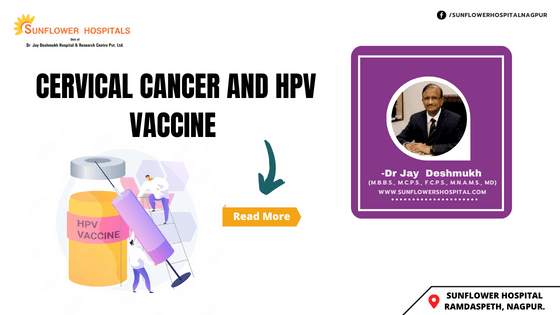What is the right age for a cervical cancer vaccine?
All females who can afford vaccines can get the HPV vaccine. Indian experts recommend this vaccine to females as young as 9 years as well as those in the age group of 13 to 26 years who have not received the vaccine earlier.
What are the general lifestyle changes that need to be observed by women to lower cancers?
Test for Human Papillomavirus and HEW vaccine tops the list. Women should limit the number of people they have intercourse with and wear protection. Cervical, ovarian, vaginal, and vulval cancers are linked to smoking, hence smoking should be avoided. Some cancers have a strong genetic basis. If you have BRA 1 or BRCA 2 mutation this increases the risk of ovarian and breast cancer multifold. Hence, genetic testing can be done easily. Every woman between the ages of 21 and 65 needs to have routine Pap tests. This helps in the early diagnosis of cervical cancer.
What about diet and physical activity? Maintaining a nutritious diet rich in fruits, vegetables, lean proteins, and whole grains will help lower the risk of gynaecological cancers. Staying active and having regular skin locally, then she should consult her gynaecologist. An annual examination of breasts and pelvic examination with a pap smear is strongly recommended to detect cancer in its earliest state.
What are the recommendations for vaccination against cervical cancers?
One or two-dose schedule for the primary targets of girls aged 9-14 years and the same for young women aged 15 to 20 years. Two doses with a 6-month inter-
Cervical cancer is mainly caused by Human Papillomavirus infection that is sexually transmitted. It is the leading cancer in women in India and the second most common cancer in women worldwide. Preventing by vaccination is emerging as the most effective option. Cervical cancer occurs early and strikes women in their most productive period. India has 1.32 lacs new cases diagnosed ed every year and, 74000 deaths annually due to cancer cervix. The first indigenously produced vaccine has been approved by health authorities in India. Exercise will improve your ability to fight against infections and cancers.
What about regular checkups and early symptoms?
If a woman has abnormal bleeding or discharge from the cervix, pain in the pelvic area or backache or abdominal pain, bloating, itching, burning or rashes, change in colour of
Val for women older than 21 years. In HIV-positive women, three doses are required.
Do women who have received the HPV vaccine still need to have Pap tests?
The HPV vaccine is not intended to replace the Pap test. Routine screening for cervical cancer through regular Pap tests beginning at age 21 remains an essential part of preventive health care. Vaccines are not 100% protective against cervical cancers and thus are not a replacement for periodic screening.
What is the cost of vaccines in India?
Two HPV vaccines are available in India. Both by foreign pharmaceutical companies. Gardasil and Cervarix see for around Rs 2800 each. Serum India’s entry is expected to bring down prices. India-made HPV vaccine is likely to cost 2200. Cervavac is the name of the Indian vaccine. It is quadrivalent and thus is effective against at least 4 variants of cancer-causing Human Papilloma Virus.
What are the concerns and safety of HPV vaccination?
The main obstacle was financial. The high cost prohibited accessibility to these vaccines. The vaccines are safe and there are no major adverse effects. Educating the care providers and girls and young women at large is essential. The introduction of an Indian-made HPV vaccine and its mass administration to girls and young women should reduce the cancer burden of cancer cervix in India. Mass edu• cation as regards sexual behaviour and a healthy lifestyle are important.

